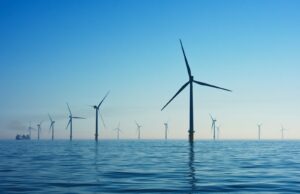Almost two thirds (64%) of small and medium-sized business owners want to improve their environmental sustainability, with economic savings being the mean motivation for doing so, according to a survey conducted by Lloyds Bank.
With the importance of transitioning to a low-carbon economy being more essential than ever, Lloyds Bank has revealed that 44% of business owners believe that becoming more environmentally sustainable is important for the future of their business.
Almost a quarter (24%) of businesses said they have already taken steps to make their buildings more energy-efficient and 63% said they have taken steps to becoming more sustainable.
The majority of business owners who were involved in the survey admitted that the main motivation for making changes to their businesses was the long-term savings that can be made in doing so.
Keith Softly, head of asset finance at Lloyds Bank said: ‘With environmental sustainability high on the agenda for firms of every size, whether that means they’re doing what they can to reduce energy consumption or cut waste, businesses understand that there is often a financial benefit to making their operations greener.
‘As ever, before making significant investments, businesses should consider all the available funding options to decide which is the most appropriate for them
‘When it comes to going green there are options such as government grants and asset finance solutions that help spread the cost of an investment over its lifetime, and initiatives like our Clean Growth Finance Initiative which offers discounted lending for green purposes.
‘Regardless of the motivation, we can be confident the impetus to introduce green measures isn’t going anywhere. Becoming more sustainable is a gradual process the UK business community must navigate together.’
Despite their advice to smaller businesses on how to become more environmentally sustainable, Lloyds Bank themselves has faced criticised for their own environmental policies.
In a report published by Bank Track last year, it was revealed that since 2015, major banks, including Lloyds have invested $1.3trn in fossil fuels. In October last year Environment Journal investigated this further, looking at why environmental transparency is so important in banking.
Photo Credit – Pixabay
















